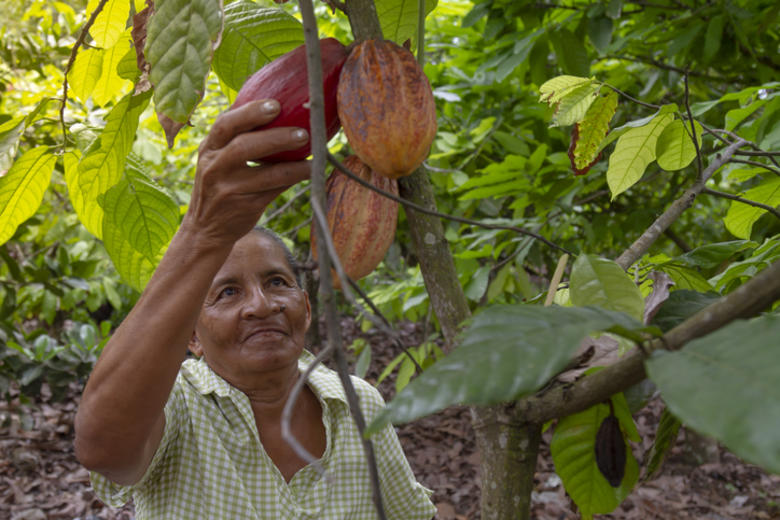OFF THE SHELF: MAY 2022
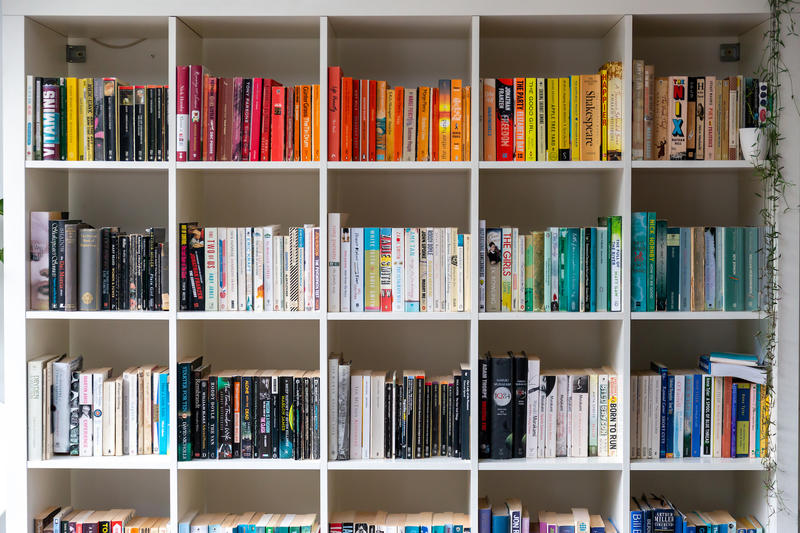
OFF THE SHELF: MAY 2022
This month, a novel about female identity, a brilliant architectural history of Oxford and the re- translation of the original Bambi novel from 1923
Published: 9 May 2022
Author: Richard Lofthouse
Share this article
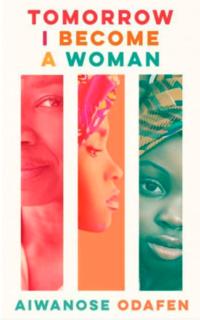

Tomorrow I Become A Woman by Aiwanose Odafen (Scribner/Simon & Schuster, April 2022)
Aiwanose (Green Templeton, 2014) holds an MBA from Said Business School. She grew up in Lagos, Nigeria and is a certified accountant. It is a remarkable facet of her own biography that she has so completely reinvented herself as a writer, to the point where Scribner, a UK division of publishing giant Simon & Schuster, has snapped up a contract for three novels of which this is the first.
She contributed to published non-fiction works initially, before participating in Chimamanda Ngozi Adichie’s Purple Hibiscus Trust Writing Workshop. She was then longlisted for the 2020 Commonwealth Writers Short Story Prize. She's now set to participate this autumn in the prestigious Iowa Writers' Workshop.
Tomorrow I Become A Woman starts when Gozie and Obianuju fatefully meet in August 1978. He is the perfect man: charismatic, handsome, Christian, and – most importantly – Igbo. He reminds her of her beloved Uncle Ikenna, her mother’s brother who disappeared fighting in the Civil War that devastated Nigeria less than a decade before. It is why, when Gozie asks her to marry him within months of meeting, she says yes, despite her lingering and uncertain feelings for Akin – a man her mother would never accept, as his tribe fought on the other side of the war.
Akin makes her feel heard, understood, intelligent; Gozie makes her heart flutter.
For Uju, the daughter her mother never wanted, marriage would mean the attainment of that long elusive state of womanhood, and something else she has desired all her life – her mother’s approval. All will be well; he is the perfect match, the country will soon be democratic again and the economy is growing, or so she thinks.
Loosely based on the real stories of real women known to the author, Tomorrow I Become a Woman follows a complex relationship between mother and daughter as they grapple to come to terms with tremendous loss. It’s a powerful debut by Aiwanose and a sensitive exploration of a woman’s struggle to meet societal and cultural expectations within the confines of a difficult marriage, a tribute to female friendship and a love story that spans two decades and continents against a backdrop of political turmoil and a fast-changing world.
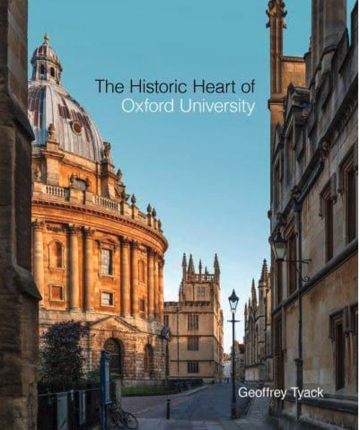
The Historic Heart of Oxford University by Geoffrey Tyack (Bodleian Library Publishing, March 2022)
A beautiful production by Bodleian Library Publishing, this book avails itself of intelligent visuals allied to clear, commanding prose by the author who in turn knows his stuff.
It’s hard to think of a single volume that could rival The Historic Heart for explaining the University to itself, since the buildings of the title – all contained within an elongated north-south ellipse encompassing the very centre of the University with Radcliffe Square at its heart – all arise organically and historically. The University was never ‘designed’. It arose over several hundred years.
Tyack (St John's, 1964), emeritus Fellow of Kellogg College and President of the Oxfordshire Architectural and Historical Society, has taken his inspiration from famous architectural historian Nikolaus Pevsner who declared ‘The area by the Radcliffe Camera and the Bodleian … unique in the world, or, if that seems a hazardous statement, it is certainly unparalleled at Cambridge … it is the closeness and compactness, the absence of anything merely a foil that is only true of Oxford.’
As such the book is organised around these very buildings, according to a broad chronology starting with the University Church and its adjacent Congregation House; then The Divinity School and Duke Humfrey’s Library, and then in successive chapters the Schools Quadrangle, Sheldonian Theatre, old Ashmolean Museum, Clarendon Building, Radcliffe Camera and finally into the 20th century with the New Bodleian/Weston Library, that slightly marmite creation by Giles Gilbert Scott.
It is most helpful to read sober rendering of the origins of the University, which doesn’t get hung up on dates and what is oldest, but explores the reality of Oxford in the 13th century, where more often than not lectures were conducted in a multiplying number of halls, residential dwellings for students some with rooms large enough for lectures. Alongside St Mary’s on the High Street and the various properties belonging to the mendicant orders, these architectures were the main site of all teaching at the University from c.1200 to c.1400.
A handful of colleges predate 1400 and others grew as halls, the most notable survivor St Edmund’s Hall, eventually given college status in 1957 but tracing its origins to an estimated 1236.
The four main figures in the book are architects as one expects: Christopher Wren, Nicholas Hawksmoor, James Gibbs and Giles Gilbert Scott.
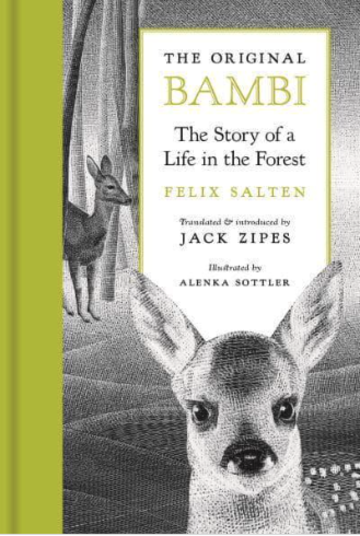
The Original Bambi by Felix Salten (Princeton University Press, 2022)
Something a wild card here, but with terrific illustrations by Alenka Sottler, a fresh translation by master translator Professor emeritus Jack Zipes of the University of Minnesota and a very fine hardback edition by Princeton University Press from its new Oxford base on the Banbury Road, we were intrigued by the appearance of this book in 2022, just ahead of the centenary of its original publication.
What is or was Bambi? It was originally published in 1923 as a novel in German by Austrian Jewish journalist and novelist Felix Salten. He was prolific and as often happens, had one big hit: Bambi, a deer who grows to maturity in the forest amidst danger.
Translated into English in 1928 and thenceforth into a Walt Disney production in 1942, most of the original was lost, both its narrative and its meaning.
If you strip the whole thing back to the original and add in Zipes’ super new introduction, what you get is a precarious, raw post-Great War allegory of Jewish assimilation to Vienna’s high society, haunted by a fear of its undoing.
Salten himself came out of a dirt poor family, escaped to make a vertiginous climb into society, succeeded turbulently, and fell back as the further realities of the 20th Century came to bear and eventually Nazi Germany (a sequel called Bambi’s Children was published, one might say ironically, in 1940).
At a more personal level he was absolutely a nature lover who realised deep aspects of his ‘true self’ away from the newsroom and the hectic scribbling of a journalist novelist, yet he was also a dedicated hunter who killed beautiful creatures and couldn’t help himself as he did so.
So the book carries a warning sticker. It is far less saccharine than Walt Disney. Or as Zipes puts it most eloquently, ‘A hunter and benefactor of animals, Felix Salten, born in Pest, Hungary, on 6 September, 1869, was a living contradiction for most of his life.’
There is a huge anthropomorphism of nature throughout. For instance, a squirrel tells Bambi that an oak tree has been felled by a human, from an imagined animal perspective.
The axe used is expressed by the squirrel as a ‘gigantic gleaming tooth.’ The felling takes place very quickly yet the tree was hundreds of years old.
‘The tree groaned loudly when it was wounded. It kept on screaming, and the tooth kept screaming. It was horrible to hear all this noise. Then the poor beautiful tree toppled over onto the meadow. We all wept.’
There is a modernist sensibility of sorts, because the book reads like outraged tragedy. But it is also trite and overcharged in emotion, enough so to entice Walt Disney.
The author is both Bambi and the omnipotent hunter. He’s hopelessly ensnared by an identity crisis that is undeniably of the twentieth century but also uniquely Jewish and timeless.
Humans can be terrible people. They are destructive by impulse, multiplied by technology. We might not need any reminders of that in 2022 but this edition of a famous book goes a long way to restoring the truth of the original and that is well worth celebrating.
The black and white illustrations and overall production values are superb, and the words will unsettle even stalwart readers – there is even a ‘Word of warning before you enter the forest’ by Zipes.
Off the Shelf typically concerns books where there is an Oxford connection, whether the place, the University or of course the author.
Alumni can claim 15% discount in any Blackwell's store with a My Oxford Card.
Alumni can claim 20% discount at Oxford University Press.
Details about the Oxford Alumni Book Club are at: www.alumni.ox.ac.uk/book-club








